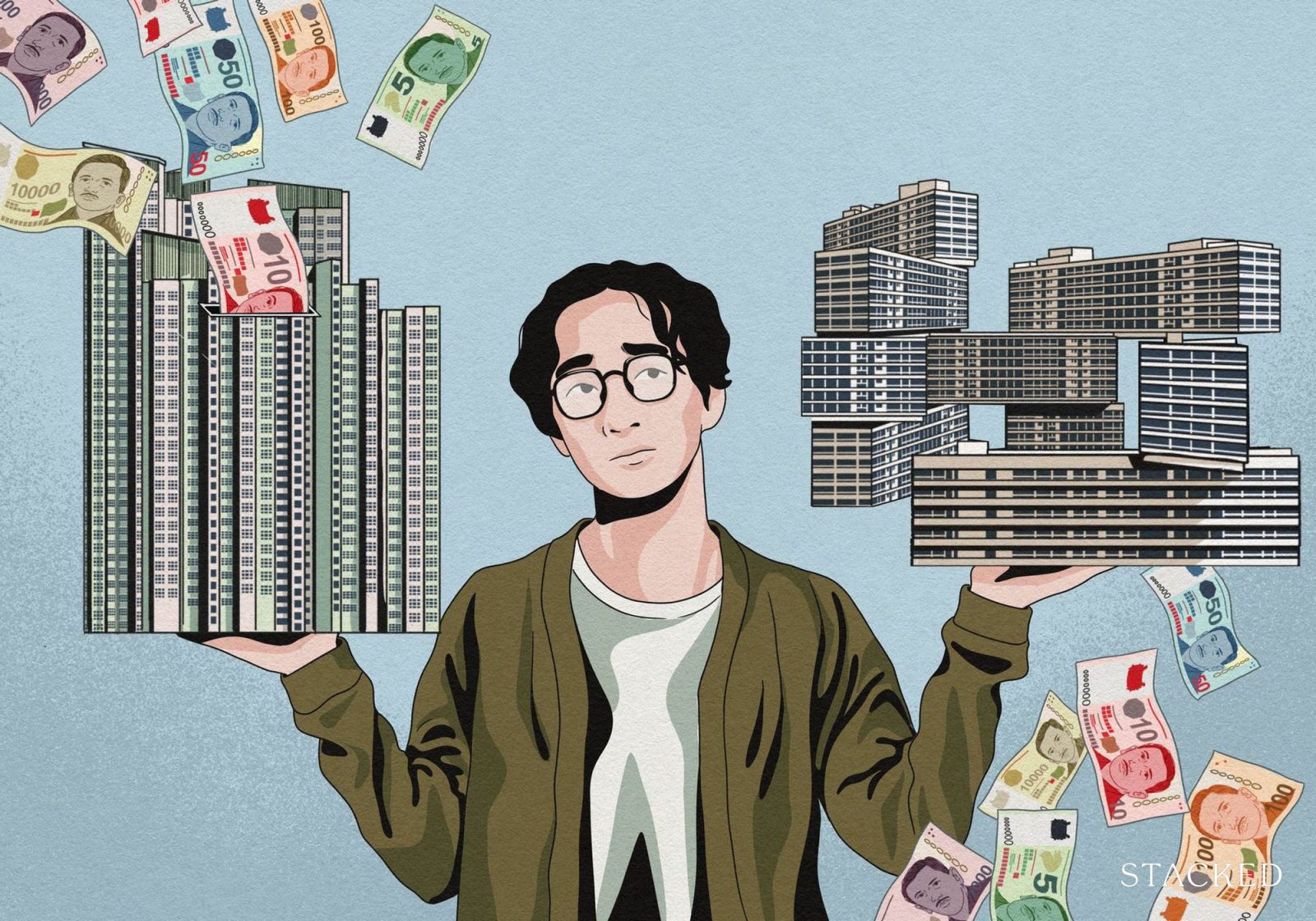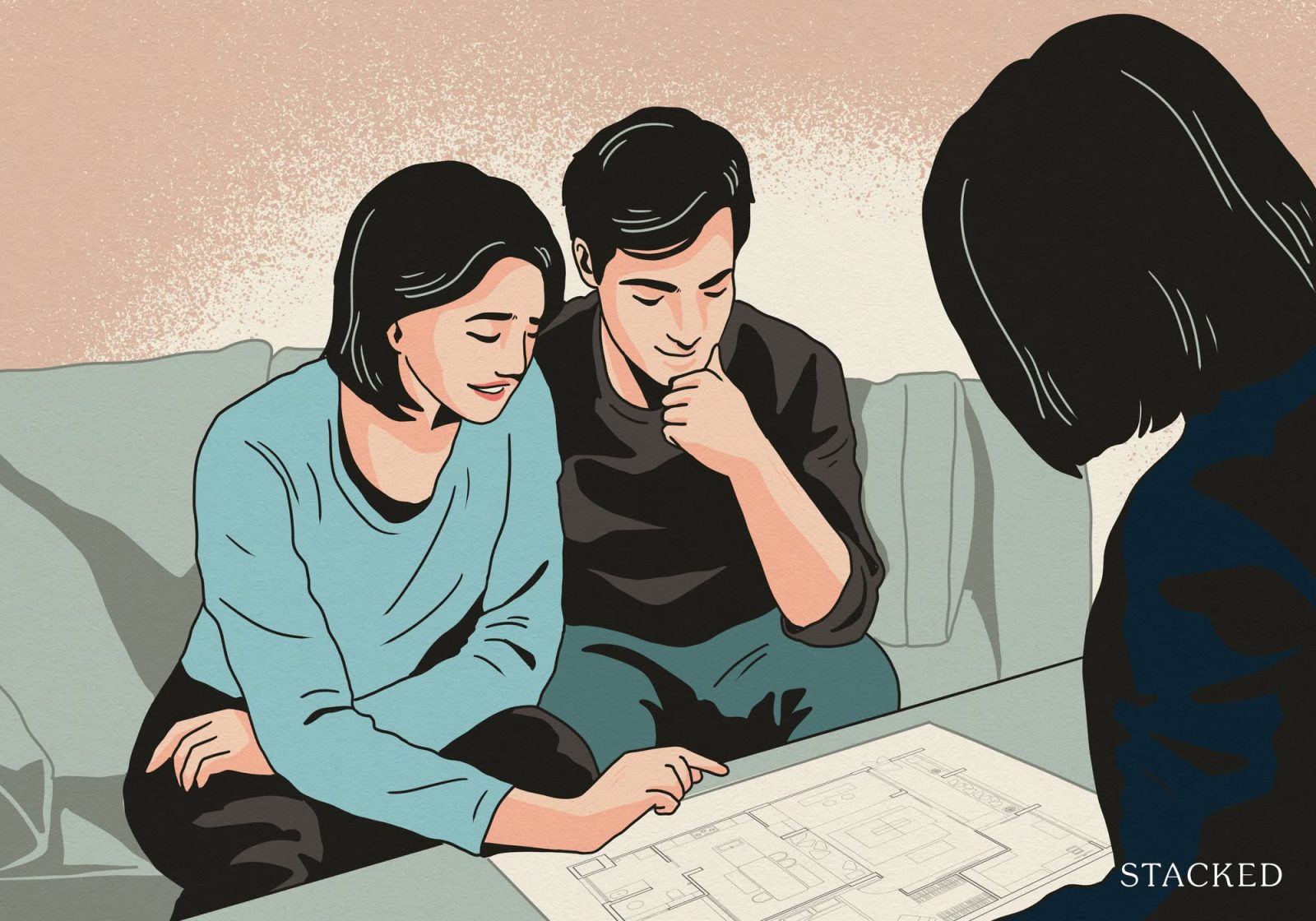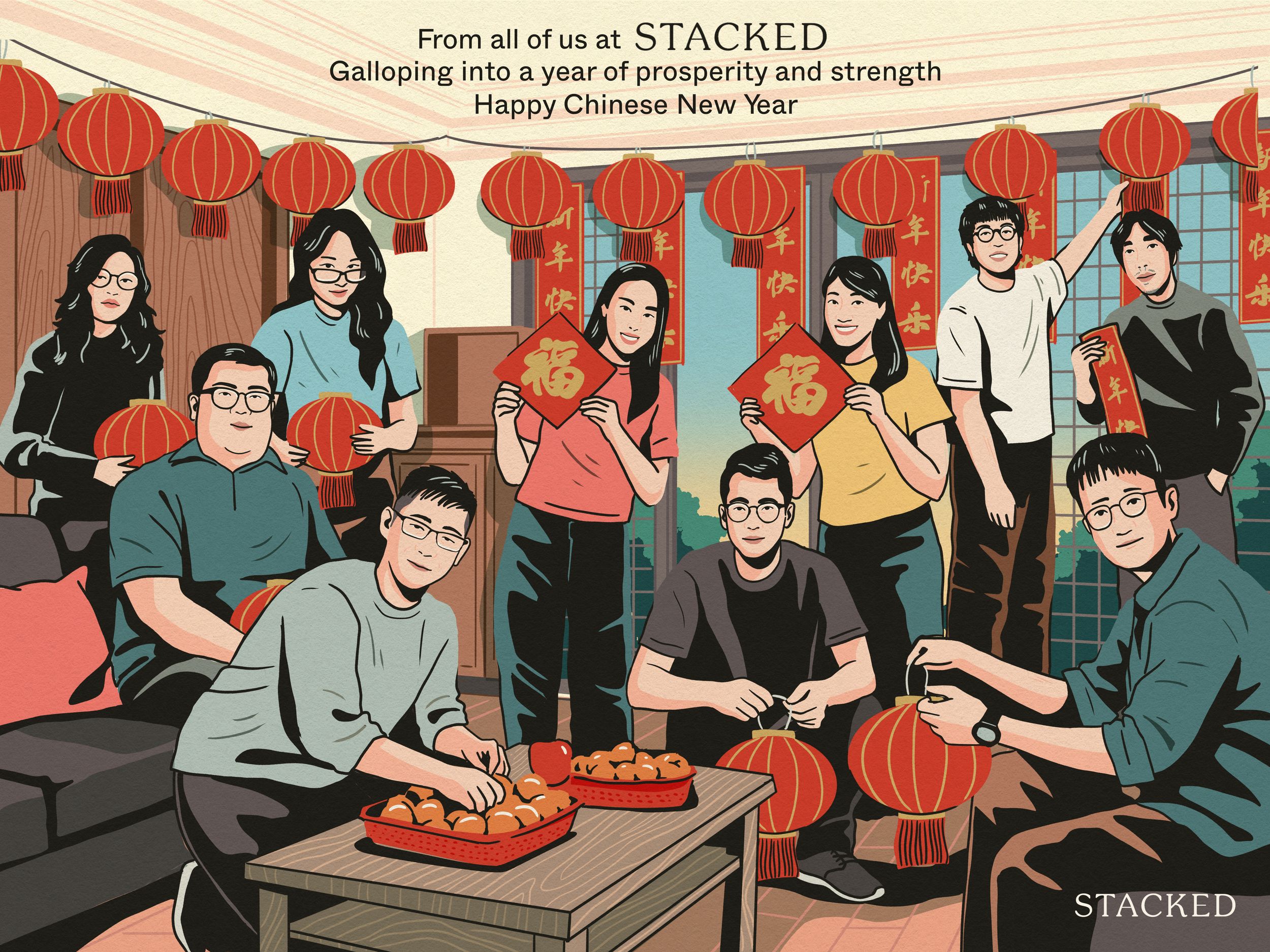The 5 Most Common Property Questions Everyone Asks In Singapore – But No One Can Answer
September 3, 2025

Although I’ve been investing and writing about real estate for over a decade now, some questions still make me pause and take a deep breath. Because what’s going to follow is a very long-winded explanation, chock-full of words like “unless,” “maybe,” and “contextually.” And at the end of it, I know you’re going to be disappointed and feel like I didn’t answer your question.
But the results would be the same no matter who in the industry you approach – and contrary to what the cynics claim, it’s not because we’re being elusive or are trying to sell you something.
(By the way, the people who give you simplistic and overconfident answers are usually the ones trying to sell you something.)
The reason is that some of the most common questions in real estate are also the most complex and nearly impossible to answer in any general sense. Here are those questions, along with some better versions of those questions to ask:
Many readers write in because they're unsure what to do next, and don't know who to trust.
If this sounds familiar, we offer structured 1-to-1 consultations where we walk through your finances, goals, and market options objectively.
No obligation. Just clarity.
Learn more here.
1. Is a freehold condo better than a leasehold condo?

There is no definitive answer to this, because condo prices move for many reasons besides just the tenure. For example, in a recent 10-year analysis we conducted, we found that leasehold condos often outperform freehold counterparts in terms of percentage gains; especially for new launch projects.
From the linked study, we found that between 2014 and 2024, two-bedder leasehold units (new launch) saw 20.1 per cent ROI, compared to just 8.3 per cent for their freehold equivalents. And across all sizes, leasehold new launches had higher ROI and annualised gains than freehold.
The key reason? Leasehold condos are more common in the mass market OCR, where lower entry prices allow for greater appreciation potential. In contrast, freehold condos tend to be boutique projects in pricier areas, with less room for growth.
So none of it reflects on how freehold status is better or worse; it just shows that tenure largely isn’t the main factor behind returns.
But over many years, the freehold status will matter more, right?
This is one of those things that sounds intuitive, but is actually hard to prove or predict. A lot of this depends on whether the property lasts so long, that freehold status kicks in and starts to matter.
Based on our study, most condos in Singapore – freehold or leasehold – typically vanish in an en-bloc after just 19 to 24 years. At that age, a leasehold property still retains over 88 to 91 per cent of its freehold value, according to Bala’s Table.
So if a leasehold property is sold en bloc before significant lease decay, and if it’s bought at a lower entry price (because there was no freehold premium), it may end up offering better returns than a freehold counterpart.
In short: tenure matters, but context matters more. For most buyers and investors, factors like location, pricing, and holding period tend to matter far more than whether a condo is freehold or leasehold.
A better question to ask may be: How long are you intending to hold on to the property?
As we explain here, leasehold properties tend to outperform freehold counterparts, over shorter periods (defined as around 10 years or less.) This is because the lease decay is insignificant over a shorter period, so you’re just paying the freehold premium for no reason.
Conversely, you might want to aim for freehold if you’re holding for a longer period, like 15 to 20 years or more; or if you’re buying an already older project, and still intend to hold for a long period. Again, this isn’t a guarantee of improved performance, but it does mean lease decay won’t affect the condo’s value as much.
(That’s assuming the condo stays well-maintained throughout; even freehold status won’t help if the facilities, facade, etc., all visibly suffer from age.)
2. Should I buy now, or wait for the market to crash?
Let’s start by saying that times when property prices fall are uncommon. That’s not just a sales pitch from property agents; we’ve chronicled them here. Most of the time, property prices go up – and waiting just means you’ll buy at a higher price.
During the few occasions when prices did drop, like the Asian Financial Crisis, Dot-Com Bubble, Global Financial Crisis, and COVID-19, the downturns were often very short-lived and hard to act on. When it does happen, your window of opportunity is usually small, chaotic, and very frightening to act on (e.g., do you really want to buy a condo during the worst part of a recession or pandemic?)
And as we’ve found in the linked article, the recoveries from down periods can be sharp and fast. When COVID struck in 2020, prices initially fell as show flats closed, and agents couldn’t make transactions. By early 2021, the market had already flipped. Prices surged due to construction delays that choked supply, demand for more and larger homes (due to Work From Home), and record-low interest rates.
The end result is that today, a new launch two-bedder costs about $1.8 million. Had you bought just prior to COVID, you may have paid around $1.2 million.
This is why it’s so difficult to tell you that you should wait; and impossible to tell you exactly how long you should wait.
A better question to ask may be: Does my personal financial situation put me in a good place to buy right now?
If you don’t have sufficient savings, or are in an unstable income situation, then the state of the market is immaterial – you shouldn’t buy. Conversely, if your finances are rock solid, you won’t have any issues even if property prices fall; because you have sufficient holding power to ride out the downturn.
So the decision to act shouldn’t be based on market timing, but on the desired unit price versus what you can afford. We can give you more concrete answers to such questions, if you’re willing to reach out.
3. Is this a condo a good investment?
This question is too vague to answer, because the term “good investment” means different things to different people. Are we talking about:
- High rental yield?
- Absolute rental income?
- Strong long-term capital appreciation?
- Short-term appreciation, to sell right after the SSD period?
To give you an example, we’ve met buyers who are happy with a unit that generates $4,000 a month in rent, regardless of its resale potential or yield. The reason is that they have a specific retirement target (e.g., a fixed Income Replacement Rate) and the absolute rental income suffices.
More from Stacked
We Own An EC In Punggol That Has Appreciated: Should We Sell To Buy A Resale Condo Or New Launch?
Hi There,
It may be a run-down 50-year-old walk-up apartment with minimal resale potential, but they don’t care because it’s just to generate rental income for their twilight years.
Likewise, a one-bedder could be great for a landlord, because the low quantum means a high rental yield. But it might be terrible for someone chasing resale gains, because most condo buyers are HDB upgraders, who have no use for a 470 sq ft unit.
A better question to ask may be one of the pointers above. Questions like “Is this a good rental yield compared to surrounding alternatives?” Or “What’s the potential for long-term appreciation compared to this other condo?”
Once we know the specifics, we can evaluate whether the property matches the definition of a “good investment.”
4. Will bigger units be easier to sell/more profitable?

This question often confuses size with value, and square footage with function.
A 700 sq ft unit with an efficient layout (e.g., dumbbell layout, Jack-and-Jill bathroom doors, encloseable kitchen) can see more demand and attract more offers than a poorly designed 850 sq ft unit with planter boxes, a long hallway, poor ventilation, etc.
While there are inexperienced buyers who just look at square footage, we find they’re a shrinking group. Most buyers today are much more savvy, and there’s a ton of information they can conjure up from ChatGPT or just forum sites.
That means we can’t answer the question of whether a bigger layout will be easier to sell/more profitable, unless we see the exact unit in question. And it’s not universally true that just because a unit is bigger, it will attract more buyers. Older HDB flats also tend to be bigger, for example, but not everyone is eager to buy one built in the 1970s (an issue that will worsen with time).
Another issue is that oversized units can have a negative impact on resale prospects. In some projects, like Reflections at Keppel Bay, size was part of the problem: even with a low $PSF, the huge units pushed up the overall quantum. And once you’re past $2 million, it’s out of reach of many HDB upgraders; an oversized unit that hits $3 million or $4 million is likely to have a much smaller buyer pool.
So again, we need to look at specifics. Bigger can be easier to sell or more profitable, but within reason.
A better question to ask may be: Who are likely to be the future buyers of this project, upon resale?
If we can see the answer is “family buyers and HDB upgraders,” for example, then we may know they like units of around 900 to 1,000 sq ft, which is roughly the size of a 4-room flat. But we also know that they can afford around $1.8 million – so from there, we can extrapolate on the best balance of size and price to aim for.
If there isn’t a specific project in question, then the answer to this question is always just “maybe.”
5. How do I find an undervalued property?
This is the myth of hidden gems: properties priced below their worth, waiting to be snapped up by savvy buyers. In reality, most of the buyers who “found” these gems were more lucky than skilled; because true “undervaluation” is often clear only in hindsight.
It’s nearly impossible to define “undervalued” in a way that holds up across different buyers and timelines. Undervaluation isn’t objective: it depends heavily on future catalysts like infrastructure upgrades, rezoning, or en bloc potential, all of which may never materialise. Believing that this question can be answered is literally believing someone can see the future.
A good example of this is the Joo Chiat area. In the 2000s, Joo Chiat was almost on its way to becoming the next red light district, being packed with sleazy massage parlours and dive bars. Few were willing to buy residences or shophouses in the area; but they turned out to be undervalued because of a major clean-up of the area.
Likewise, few people would have predicted two decades ago that Tiong Bahru’s ageing flats would be hot properties today; or in the 1980s that Bugis would be an amazing place to own properties (Bugis, incidentally, was even more seedy than Geylang in your parents’ day.) The people who happened to hold on to properties in those areas likely didn’t think of them as “undervalued”; it was just what they inherited or could get their hands on, and they didn’t sell because demand was low at the time.
Even if you were to find such an area today – and you were brave enough to buy into it – you’d need deep pockets. If banks are reluctant to finance the property due to lease decay, location stigma, or an awkward layout, it’s not truly accessible to most buyers anyway.
A better question to ask may be: What are the surrounding plots zoned for, and what does the Master Plan say about this location?
Even this is no guarantee of finding an “undervalued” property. But it is the closest we can come to gauging future resale potential; such as if we notice a condo will benefit from the Greater Southern Waterfront, be near a future transport node, and so forth. But even then, this should be regarded as a highly speculative question, and not something to bet your entire property purchase on.
For grounded insights into the real estate market, as well as practical reviews of new and resale projects alike, follow us on Stacked. You can also reach out to us directly, if you’re unsure of what questions to ask when buying or selling.
At Stacked, we like to look beyond the headlines and surface-level numbers, and focus on how things play out in the real world.
If you’d like to discuss how this applies to your own circumstances, you can reach out for a one-to-one consultation here.
And if you simply have a question or want to share a thought, feel free to write to us at stories@stackedhomes.com — we read every message.
Ryan J. Ong
A seasoned content strategist with over 17 years in the real estate and financial journalism sectors, Ryan has built a reputation for transforming complex industry jargon into accessible knowledge. With a track record of writing and editing for leading financial platforms and publications, Ryan's expertise has been recognised across various media outlets. His role as a former content editor for 99.co and a co-host for CNA 938's Open House programme underscores his commitment to providing valuable insights into the property market.Need help with a property decision?
Speak to our team →Read next from Editor's Pick

Editor's Pick Happy Chinese New Year from Stacked

Property Market Commentary How I’d Invest $12 Million On Property If I Won The 2026 Toto Hongbao Draw

Overseas Property Investing Savills Just Revealed Where China And Singapore Property Markets Are Headed In 2026

Property Market Commentary We Review 7 Of The June 2026 BTO Launch Sites – Which Is The Best Option For You?
Latest Posts

Singapore Property News Why Some Singaporean Parents Are Considering Selling Their Flats — For Their Children’s Sake

Pro River Modern Starts From $1.548M For A Two-Bedder — How Its Pricing Compares In River Valley

New Launch Condo Reviews River Modern Condo Review: A River-facing New Launch with Direct Access to Great World MRT Station




































0 Comments